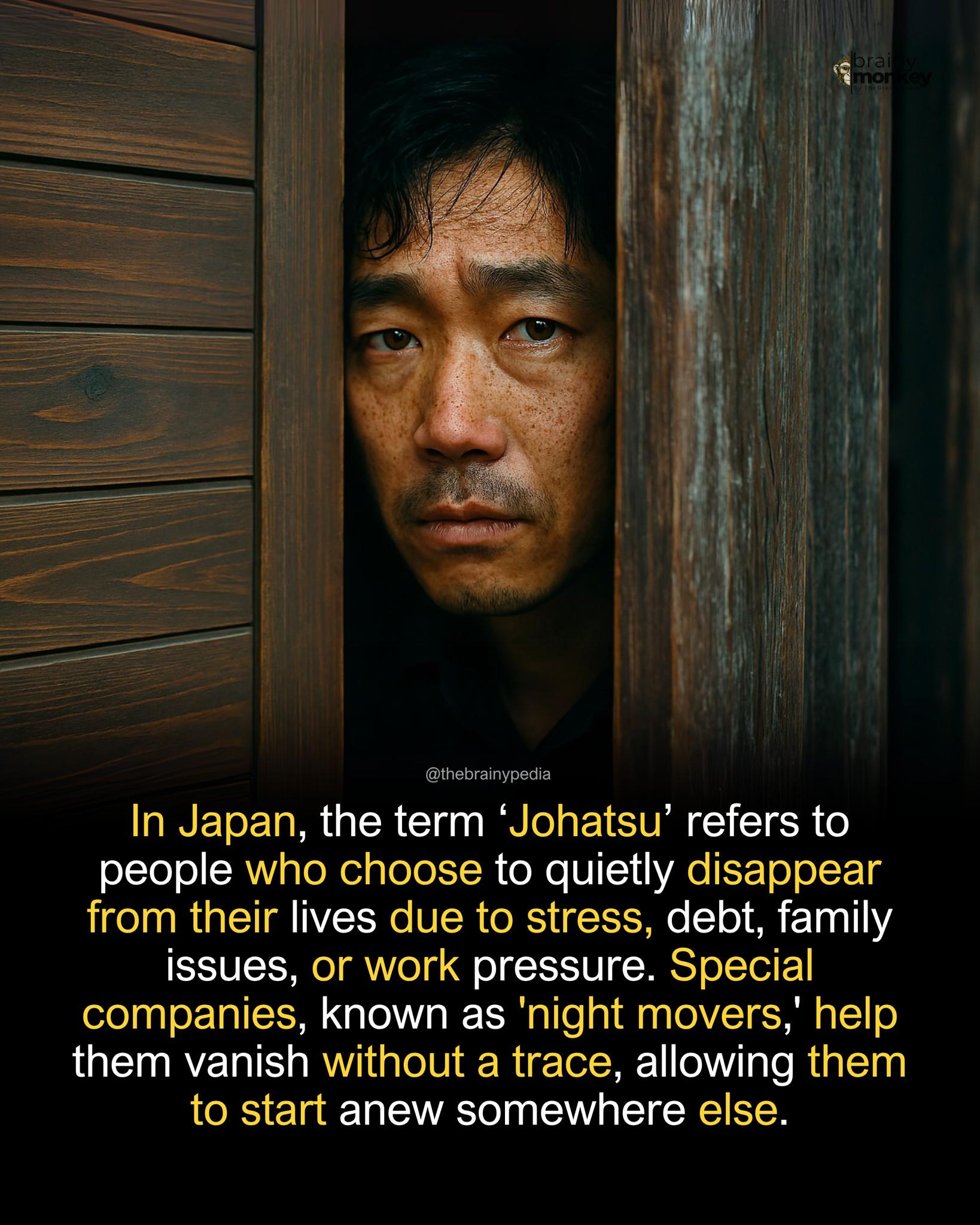In Japan, the term "Johatsu" (蒸発), which literally means "evaporation," refers to people who deliberately disappear from their lives due to intense personal pressures like debt, family conflict, shame, or work-related stress. According to The Economic Times, these individuals often vanish without warning, leaving behind homes, jobs, and relationships to start over in complete anonymity.
To make this possible, many turn to specialized companies known as "night movers" or yonige-ya. These discreet services operate mostly under cover of darkness, helping clients pack up and relocate without alerting neighbors or family. The phenomenon gained traction in the 1990s after Japan’s economic bubble burst, leaving many in financial ruin. Sociologist Hiroki Nakamori notes that Japan’s cultural emphasis on privacy and the limited police involvement in non-criminal disappearances make it surprisingly easy for someone to vanish.
Credits: Brain Monkey
#Japan #heal #life
To make this possible, many turn to specialized companies known as "night movers" or yonige-ya. These discreet services operate mostly under cover of darkness, helping clients pack up and relocate without alerting neighbors or family. The phenomenon gained traction in the 1990s after Japan’s economic bubble burst, leaving many in financial ruin. Sociologist Hiroki Nakamori notes that Japan’s cultural emphasis on privacy and the limited police involvement in non-criminal disappearances make it surprisingly easy for someone to vanish.
Credits: Brain Monkey
#Japan #heal #life
In Japan, the term "Johatsu" (蒸発), which literally means "evaporation," refers to people who deliberately disappear from their lives due to intense personal pressures like debt, family conflict, shame, or work-related stress. According to The Economic Times, these individuals often vanish without warning, leaving behind homes, jobs, and relationships to start over in complete anonymity.
To make this possible, many turn to specialized companies known as "night movers" or yonige-ya. These discreet services operate mostly under cover of darkness, helping clients pack up and relocate without alerting neighbors or family. The phenomenon gained traction in the 1990s after Japan’s economic bubble burst, leaving many in financial ruin. Sociologist Hiroki Nakamori notes that Japan’s cultural emphasis on privacy and the limited police involvement in non-criminal disappearances make it surprisingly easy for someone to vanish.
Credits: Brain Monkey
#Japan #heal #life




